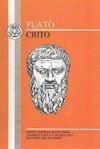
Crito is a dialogue by the ancient Greek philosopher Plato. It is a conversation between Socrates and his wealthy friend Crito regarding justice, injustice, and the appropriate response to injustice. Socrates thinks that injustice may not be answered with injustice, and refuses Crito's offer to finance his escape from …
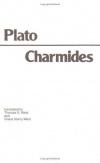
The Charmides is a dialogue of Plato, in which Socrates engages a handsome and popular boy in a conversation about the meaning of sophrosyne, a Greek word usually translated into English as "temperance", "self-control", or "restraint". As is typical with Platonic early dialogues, the two never arrive at a completely …
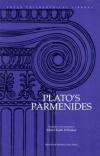
Parmenides is one of the dialogues of Plato. It is widely considered to be one of the more, if not the most, challenging and enigmatic of Plato's dialogues. The Parmenides purports to be an account of a meeting between the two great philosophers of the Eleatic school, Parmenides and Zeno of Elea, and a young Socrates. …
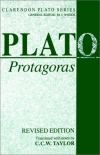
Protagoras is a dialogue by Plato. The traditional subtitle is "or the Sophists". The main argument is between the elderly Protagoras, a celebrated Sophist, and Socrates. The discussion takes place at the home of Callias, who is host to Protagoras while he is in town, and concerns the nature of Sophists, the unity and …
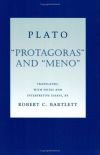
Protagoras is a dialogue by Plato. The traditional subtitle is "or the Sophists". The main argument is between the elderly Protagoras, a celebrated Sophist, and Socrates. The discussion takes place at the home of Callias, who is host to Protagoras while he is in town, and concerns the nature of Sophists, the unity and …
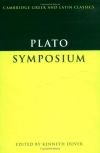
The Symposium is a philosophical text by Plato dated c. 385–370 BC. It concerns itself at one level with the genesis, purpose and nature of love, and is the origin of the concept of Platonic love. Love is examined in a sequence of speeches by men attending a symposium, or drinking party. Each man must deliver an …
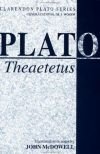
The Theaetetus is one of Plato's dialogues concerning the nature of knowledge, written circa 369 BC. In this dialogue, Socrates and Theaetetus discuss three definitions of knowledge: knowledge as nothing but perception, knowledge as true judgement, and, finally, knowledge as a true judgement with an account. Each of …
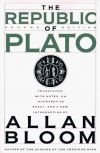
"Republic" is the central work of the Western world's most famous philosopher. Essentially an inquiry into morality, "Republic" also contains crucial arguments and insights into many other areas of philosophy. It is also a literary masterpiece: the philosophy is presented for the most part for the ordinary reader, who …

 English
English Español
Español Deutsch
Deutsch
